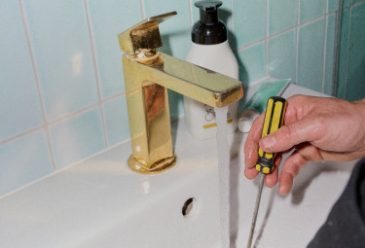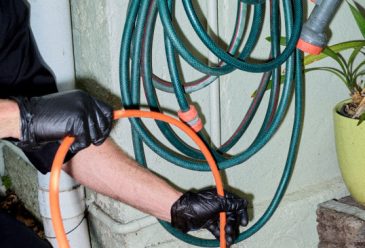When a heavy downpour hits, your stormwater drainage system is your home’s first line of defence. It’s designed to move rainwater quickly and safely away from your property, preventing flooding, structural damage, and erosion. But when these systems are blocked, even a moderate rainfall can cause serious issues.
Below, we’ll explore the most common causes of stormwater drain blockages, from fallen leaves and tree roots to construction debris and cracked pipes. We’ll also help you spot the warning signs early, understand the risks of inaction, and show you how to prevent future blockages.
Signs Your Stormwater Drain Is Blocked
Before looking into the causes, it’s important to recognise when something’s wrong. A blocked storm drain doesn’t always start with a dramatic flood. It often begins with subtle clues.
Common symptoms include:
- Pooling water in your yard, driveway, or near downpipes
- Slow drainage during and after rain
- Gurgling sounds from outdoor drains
- Unpleasant odours near stormwater pits or grates
- Flooding around your home’s foundations
- Soil erosion and damage to landscaping
- Mould and mildew growth
- Increased risk of pests like mosquitoes
- Contamination of local waterways due to polluted runoff
Common Natural Blockage Causes
Nature plays a major role in clogging stormwater systems, especially when regular maintenance is lacking.
Leaves, Twigs, and Organic Debris
In autumn and during windy or stormy weather, leaves, sticks and other organic material easily end up in gutters and downpipes. Rainwater then washes this debris into stormwater pits, where it accumulates and creates a blocked storm drain.
Soil, Sediment & Erosion
Heavy rain can carry soil, sand and mulch from unsealed surfaces or nearby landscaping into the stormwater system. Construction sites without proper sediment control can make this much worse, packing sediment into pipes and restricting water flow.
Tree Root Intrusion
Tree roots are naturally drawn to moisture, and stormwater pipes offer a steady supply. Roots can enter through small cracks or poorly sealed joints, slowly growing and expanding inside the pipe until they cause a complete blockage or even pipe collapse.
Heavy Rainfall Overload
Even well-maintained drains can struggle during extreme weather. If your system is already partially blocked, a sudden downpour can quickly overwhelm it. When water has nowhere to go, it backs up and spills over into your property.
Common Human-Induced Blockage Causes
Unfortunately, blocked stormwater drains are caused by everyday human activities, often without us realising it.
Litter, Rubbish & Yard Waste
Stormwater grates often catch more than just rain. Plastic bags, wrappers, food containers, or even small toys can wash into the system during storms. Garden waste like grass clippings or leaves swept into the gutter can also cause havoc.
Grease, Oil & Food Scraps
Outdoor sinks or washing areas can be a problem if not properly connected. Grease and food particles that go down the wrong drain can solidify, trap other debris, and form sticky blockages in stormwater drainage systems that are hard to remove.
Construction & Renovation Debris
Renovation works, especially external jobs like paving or fencing, can introduce cement dust, grout, and gravel into nearby drains. These materials can settle and harden inside stormwater pipes, reducing their capacity.
Structural & Installation Issues
Even the best-maintained system can run into trouble if there are structural flaws or outdated components.
Cracked, Collapsed or Misaligned Pipes
Over time, soil movement, tree growth, or simply age can cause pipes to crack, collapse, or shift out of alignment. These defects allow dirt and roots to enter the system and prevent water from flowing smoothly.
Poor Gutter-to-Drain Connections
If downpipes aren’t correctly connected to the stormwater system—or if the slope is wrong—water may overflow or back up. This often leads to localised flooding, especially during storms.
Consequences of Ignoring Blocked Drains
Blocked stormwater drains are not just a nuisance. Ignoring the issue can lead to costly and sometimes dangerous outcomes:
- Flooding of garages, basements, and the lower parts of the home
- Foundation damage, leading to cracks in walls or shifting structures
- Soil erosion, undermining your garden or paved areas
- Mould and damp issues inside the home
- Mosquitoes and pests, attracted to standing water
- Environmental harm occurs when polluted stormwater enters local rivers and creeks
Proactive Prevention Strategies
Thankfully, many blocked stormwater drains can be prevented with a little forward planning.
Regular Cleaning & Inspections
Clear leaves and debris from gutters, downpipes, and grates, especially before storm season. Regularly check visible drains for signs of obstruction or slow flow.
Install Gutter Guards & Mesh Screens
These simple additions help stop leaves and larger debris from entering the system in the first place.
Landscaping & Erosion Control
Grade your garden so water flows away from structures. Use mulch stabilisers, silt fences, and other erosion controls if you’re landscaping or renovating.
Install Root Barriers or Use Root-Resistant Piping
If you have large trees near your pipes, consider installing root barriers. Modern piping materials can also reduce the likelihood of root intrusion.
Professional CCTV Inspection Periodically
A CCTV camera inspection from a licensed plumber can reveal hidden problems before they become emergencies. It’s especially useful in older homes or after major weather events.
When to Call in Good Hands Plumbing
Some blockages are just too complex to handle on your own. Here’s when it’s time to bring in the professionals to unblock a stormwater drain.
Persistent or Structural Blockages
If DIY efforts don’t clear the drain—or if roots, sediment, or pipe damage are involved—our team can help with professional tools and long-term solutions.
Flooding or Property Damage
If stormwater is entering your home or flooding your yard, don’t wait. Immediate plumbing support can prevent more serious consequences.
Advanced Services: CCTV, Hydro-Jetting, Relining
Good Hands Plumbing offers state-of-the-art services, including:
- CCTV drain inspections
- Hydro-jetting to blast away stubborn blockages
- Trenchless pipe relining for efficient, no-dig repairs
Get in Contact with Good Hands Plumbing Today
If you suspect your stormwater drain is blocked or just want peace of mind before the next big storm, Good Hands Plumbing is here to help. Our experienced team provides fast, friendly, and thorough service across Sydney. For emergencies and routine check-ups alike, we’ll make sure your drainage system is in top condition.
Call us on 02 9195 6989 or enquire online to book your stormwater inspection or drain clearing service. Your home deserves good hands.
FAQs
What are the most common causes of blocked stormwater drains?
Leaves, tree roots, soil or sediment buildup, and construction debris are the most common culprits.
How can I tell if my stormwater drain is blocked?
Look for water pooling, gurgling noises, slow drainage, or bad smells near drains, especially after rain.
Can I unblock a stormwater drain myself?
Light surface debris can often be cleared with gloves and a hose, but underground or root-related blockages need professional attention.
Is a blocked stormwater drain the same as a sewer blockage?
No. Stormwater systems handle rainwater runoff, while sewer systems carry waste from toilets and sinks. They’re separate systems with different risks and solutions.
How do tree roots get into stormwater pipes?
Roots enter through tiny cracks or weak joints, then expand over time inside the pipe.
Will regular gutter cleaning help prevent stormwater blockages?
Yes, clean gutters reduce the amount of leaf litter and debris that ends up in stormwater drains.
How often should I inspect or maintain my stormwater drains?
At least once a year, and especially before the rainy season or after major storms.
What should I do if water is flooding my yard during a storm?
Turn off any external water sources if needed, document the issue, and contact a licensed plumber immediately.



